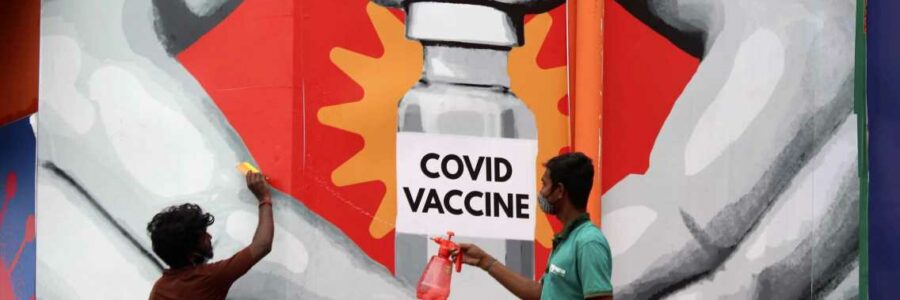
Data shows the U.S. is the world’s largest Covid vaccine donor — way ahead of China
- The U.S. is the largest donor of Covid-19 vaccines globally — way ahead of other major economies such as China, Japan and the U.K., according to public data compiled by UNICEF.
- The consolidated data may not show the full extent of global vaccine donations, but still provides a glimpse of flows as many developing nations struggle to inoculate their populations.
- The U.S. has donated and delivered more than 114 million doses of Covid vaccines, more than three times the 34 million that China has donated, according to the data.
The U.S. is the largest donor of Covid-19 vaccines globally — way ahead of other major economies such as China, Japan and the U.K., according to public data compiled by UNICEF.
UNICEF is a United Nations agency responsible for the protection and development of children. It also manages Covid vaccine supply for the COVAX initiative, which aims to share doses with lower-income countries.
The agency consolidated data on donated Covid vaccines from publicly available information, which may not show the full extent of donations globally.
CNBC Health & Science
Read CNBC's latest global coverage of the Covid pandemic:
Biden outlines plan to mandate Covid vaccines for millions: 'Our patience is wearing thin'
WHO extends call for a moratorium on Covid booster doses until the end of the year
Moderna shares rise after company reveals single-shot vaccine booster for Covid and flu
Amsterdam's coffeeshops reel from Covid hit to tourism
Still, the data provided a glimpse of vaccine donation flows as rich countries power ahead in their vaccination drives, while many developing nations struggle to inoculate their populations.
Donations fall short
The U.S. has donated and delivered more than 114 million doses of Covid vaccines to around 80 mostly developing nations across Asia, Africa and Latin America, the data showed. That's more than three times the 34 million that China has donated, according to the data.
China is the world's second-largest donor of Covid vaccines, while Japan came in third with around 23.3 million, data compiled by UNICEF showed.
Asian countries are among the top recipients of Covid vaccine donations, with Bangladesh, the Philippines, Indonesia and Pakistan having received more than 10 million donated doses each, the data showed.
Overall, more than 207 million doses of donated Covid vaccines — bilaterally or through COVAX — have been delivered, the data showed. That falls short of the number of doses recommended by an independent panel set up by the World Health Organization.
In its final report in May, the independent panel recommended that high-income countries redistribute at least one billion doses of Covid vaccines to low- and middle-income countries by Sept. 1, and another one billion doses by mid-2022.
Two of WHO's top epidemiologists on Tuesday condemned wealthy nations for hoarding Covid treatments and vaccines. One of them said such actions are prolonging the pandemic.
A study by analytics firm Airfinity showed that rich countries have bought more Covid vaccines than they need. Airfinity projects that the U.S., European Union, the U.K., Canada and Japan will have a surplus of more than 1.2 billion doses in 2021 after inoculating all eligible people and administering booster shots.
Costs of vaccine inequity
The WHO has set a target of helping every country to vaccinate at least 10% of its population by the end of this month, before raising that to at least 40% by the end of this year and 70% by the middle of 2022.
But in about 50 countries globally, fewer than 10% of the population has received at least one dose of Covid vaccine — many of those are in Africa, according to official data collated by online repository Our World in Data.
Africa as a region has vaccinated just 5.5% of the population, the lowest globally, the data showed.
Experts, including famed epidemiologist Larry Brilliant, have said that wider vaccination coverage is needed to limit new coronavirus variants and put an end to the global pandemic.
Beyond health worries, delays in vaccinating the global population could cost the world economy $2.3 trillion between 2022 and 2025, the Economist Intelligence Unit estimated. Emerging economies will shoulder two-thirds of those costs, said the consultancy.
Source: Read Full Article